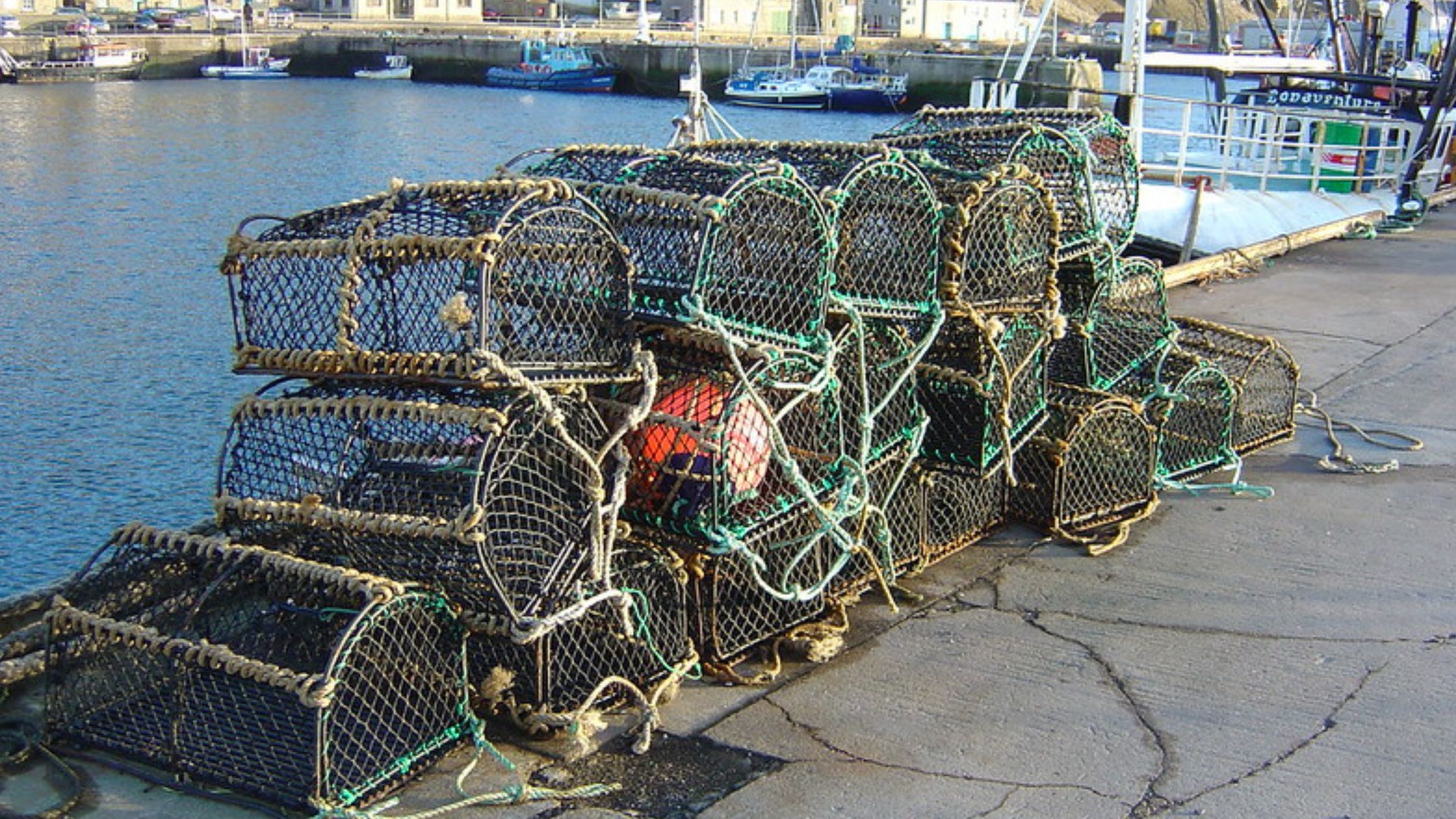Marine
Scottish crab and lobster management improvements from May
May 3, 2024 by Marine Directorate Communications 3 Comments | Category Fish protection, Fisheries, fisheries management, inshore fisheries, Scottish crab, Scottish lobster
From 12th May 2024, selected interim measures will be implemented in Scotland including:
- prohibition on landing of egg-bearing crab and lobster into Scotland
- controls on creel fishing vessels of more than 12 meters overall with a track record of landing more than 200 tonnes of crab and / or lobster in any 12 month period since 2020
Scottish inshore fisheries are vital to our economy and rural communities, but our science shows crab and lobster stocks are under pressure from overfishing in many areas.
The Scottish Government are aware that concerns over the health of these stocks are shared by many of our fishers and localised, stakeholder-driven initiatives have focussed on addressing declining catch rates for crab and lobster.
Earlier this year, working with the Regional Inshore Fisheries Groups (RIFGs) and Fisheries Management and Conservation (FMAC) Inshore Fisheries Subgroup, we began engaging with hundreds of fishermen and representatives to address these challenges head-on and formalise solutions. Central to this approach is collaborating with industry on how we might use short-term interim measures to improve the health of shellfish stocks and overall sustainability of our inshore fishing industry from May 2024.
These interim measures are part of an overarching improvement roadmap to inshore fisheries management in Scotland which also includes:
- updating our stock assessment data this year, considering other indicators of stock health for crab and lobster, as well as improving our crab and lobster sampling programme
- consulting on a broad package of inshore fisheries management measures later in 2024
- progressing related key transformational projects such as inshore vessel tracking for the under 12 metre fleet
We want to continue the co-management approach demonstrated by our development of interim measures. This includes government, industry, academia and others coming together to help shape fisheries management policy that recognises the complex variations and interlinkages in Scotland’s inshore fisheries.
Cabinet Secretary for Rural Affairs, Land Reform and Islands, Mairi Gougeon, said:
“It’s in all of our interest to alleviate pressure on our shellfish stocks and improve the science base to help ensure sustainability for Scotland’s most prominent inshore fisheries.
“Decisive action and co-management will help aid Scotland’s transition to a more agile and responsive management system.
“Only by engaging with all of industry, and listening carefully to people’s unique ideas and expertise, will we create solutions and policies that work for businesses, the wider sector and, importantly, the marine environment.”
The full detail of the license condition on the short-term improvements will be published on the Scottish Government website on Friday 10 May 2024.
Background
- Scotland’s inshore fisheries are defined as extending out to 12 nautical miles
- around 80% of Scotland’s circa 2,000 registered fishing vessels operate in these waters
- they are typically small, family businesses, comprising a mix of creelers, Nephrops trawlers, hand-liners, scallop dredgers and divers
- the 2017 Inshore Fisheries Pilots Initiative saw projects implemented in the Outer Hebrides and Mull. Both of these used additional management measures to address diminishing catch returns and competition for space
- our RIFG network has overseen development of various other initiatives including a suite of voluntary static gear controls in the Firth of Clyde
- the latest Marine Directorate Stock Assessment Report for 2016–2019 (published in 2023) highlights many stakeholders’ views on the health of shellfish stocks
Tags: fisheries, fisheries management, fisheries management measures, Inshore Fisheries, shellfish



They can not properly enforce a berried lobster ban as they have no mechanism to test for scrubbing. Incresa mls and that is the only fair option or some will scrubbing lobsters it happens in England with 90% of the boats doing it. Mmo know about it but carnt enforce it. The few that do get caught shows that it does happen
Who is going to enforce the new regulations particularly on the landing of berried hen lobsters. This was tried years ago and the fishermen just scrubbed them of. What’s changed? I’m aware that suitably qualified scientists can tell when a lobster has had her eggs removed, are you going to have scientists inspecting all landings of lobsters? WHAT are your plans. Maybe get fishermen to report their colleagues?
Banning the landing of berried hen lobsters with zero scientific data for the Solway Firth where around 50% of catches are berried hens and have been for decades will devastate the industry there. No brown crab fishery or velvet crab fishery exists in the Solway and this measure will lead to no static gear fishermen existing there either. Supercrabbers were banned there 15 years ago, the fishery is different to the rest of the west coast. Data for all Scotland is years out of date and takes no account of two MLS increases since the last data was recorded